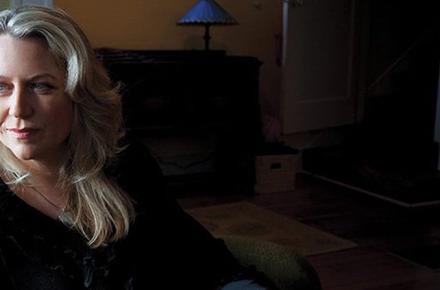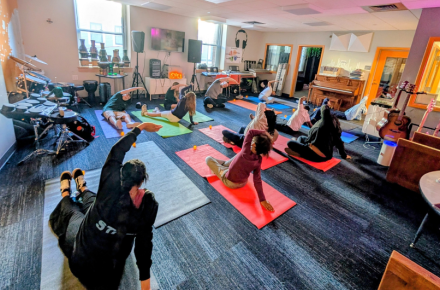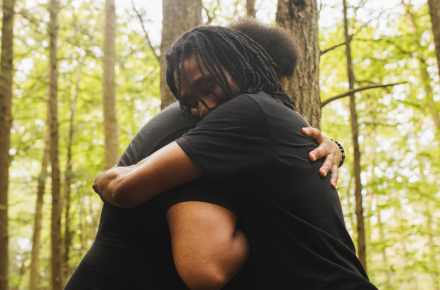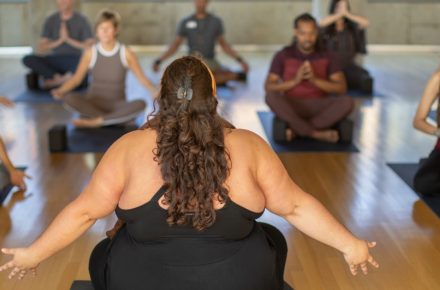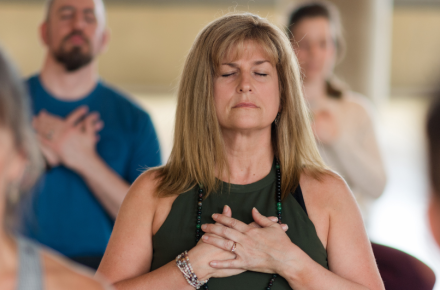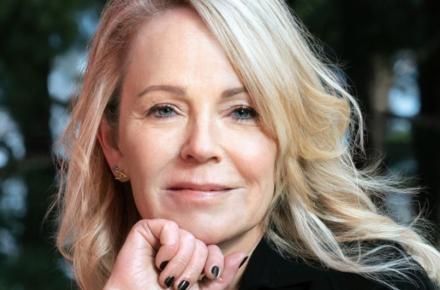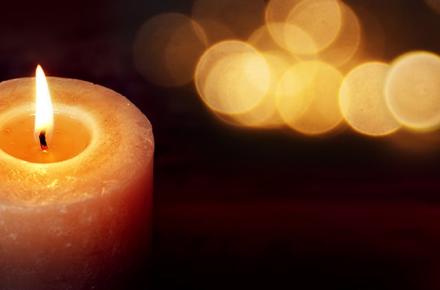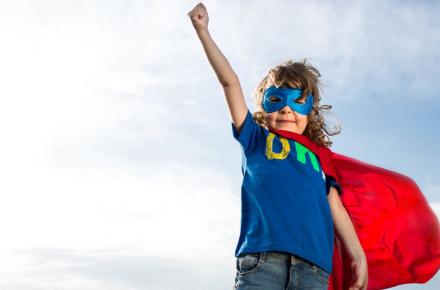Resolving Out Loud: Turning What You Want Into What You Have

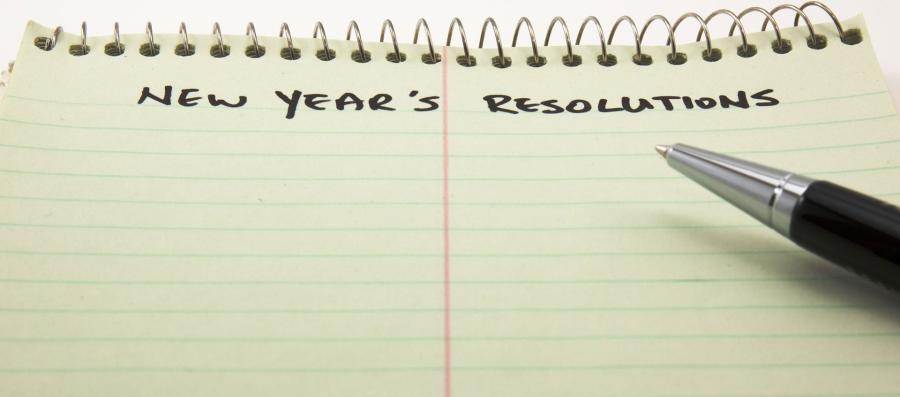
In 1998, I spent New Year’s Eve in a borrowed lakeside cabin with a few close friends. We ate too much sugar and danced to Prince’s song “1999.” My resolution was simple: to keep dancing. To be unafraid.
As 1999 progressed, I forgot this resolution. I began to worry about Y2K, the supposed computer-coding bug that would bring the world to technological collapse in 2000. We believed, once the ghostly binaries switched over to zeros, that nothing with an “on” switch would work.
It would be safe to spend December 31, 1999, skiing on a mountaintop, I reasoned, though I was only proficient on the bunny slope. My boyfriend at the time, a ski demon, steered me onto the Double Diamond chairlift instead, a trick he found hilarious. I spent the afternoon trying to maneuver down the trail without harm. (I snowplowed, inch by inch, then crawled.) By the time I reached the bottom, I was drenched in sweat, snotty from crying, and furious.
It was a Y2K meltdown of a different sort. I watched the midnight fireworks alone, that dreadful peak in the background, and resolved not to follow so blindly.
Since then, I’ve had distaste for crowded New Year’s events. (And for skiing.) Now I lead journaling sessions at Kripalu on December 31. Participants are eager to share their words on this day.
“I think sharing your New Year’s resolutions is the only way to actually make them happen,” says Katie Dalebout, host of Let It Out, a podcast on wellness, and author of a book by the same name. Like me, Katie once resolved to dance more.
“By saying resolutions out loud, writing them out, or even blogging about them, we start to turn what we want into what we have,” says Katie. “Don’t make too many—six is a good number—and think carefully about each resolution before sharing. Ask trusted friends to hold you accountable.”
Why do we make New Year’s resolutions? The practice began over four thousand years ago, writes Sarah Pruitt on History.com. Babylonians promised to pay their debts and return borrowed tools in March, the month they planted crops. They marked this “new year” with a rowdy 12-day festival.
In 46 BC, Emperor Julius Caesar rearranged the calendar year and made January the beginning. Romans began to make promises to the god Janus (namesake for the month of January), a two-faced god who could look back into the prior year and forward to the future. Romans made sacrifices to Janus and promised to be “good” in the coming year, so as not to fall out of his favor.
Fast forward to early 2018, when respondents to a national survey pledged to “be a better person,” to lose weight, to exercise more, and to find a more fulfilling job.
Such resolutions are notoriously hard to maintain. “If using willpower to keep your nose to the grindstone feels like a struggle, that’s because it is,” writes David DeSteno, a professor of psychology at Northeastern University. “Your mind is fighting against itself. It’s trying to convince, cajole and, if that fails, suppress a desire for immediate pleasure.”
For most of our evolutionary history, DeSteno explains, self-focused goals (going to the gym, drinking less, saving money) didn’t matter or exist. Instead, social bonds led to a person’s “success”; cooperation helped everyone involved. (The sharing of tools allowed Babylonians to yield more crops overall.) This isn’t something we calculate, necessarily. We “feel” we should help others out. “It’s our emotions—specifically, gratitude and compassion—that push us to behave in ways that show self-control,” writes DeSteno. “Unlike reason and willpower, gratitude and compassion naturally incline us to be patient and persevere.”
While willpower wanes over time, gratitude and compassion help us to consider the future. Social emotions “have been tied to better academic performance, a greater willingness to exercise and eat healthily, and lower levels of consumerism, impulsivity and tobacco and alcohol use,” DeSteno writes.
Katie echoes this notion. “Willpower is a limited resource,” she says. “I'm a very disciplined person to a fault—however, self-compassion always works better. We are human and therefore we will mess up! The key is to come back quickly without self-judgment or comparison and not to beat ourselves up or quit because of one slip-up.”
Journaling about our desires can make this process easier. “It helps you to get clear on what you want and define a path to make that happen,” says Katie. She encourages “expressive journaling,” which she defines as, “writing the way we speak. I often say that if you can write a text or an email, you can journal. It’s simply having a conversation with yourself, just as you’d have with a close friend.”
I ask Katie about blogging and posting versus journaling. What’s the difference for her?
“Social media give us a platform to express ourselves,” she says. “But this isn’t the same as journaling. When you’re doing it publicly, no matter how raw or vulnerable you’re being, there’s some filtering that happens, knowing that people will read it. Journaling is a way to simply dump the contents of your mind onto paper so you can see what’s there, sort through it, and decide what thoughts you want to water and expand, and which ones you can toss that might be holding you back.”
After the millennium, I stopped making resolutions. Instead, I began to consider my intentions. I ask Katie if she differentiates between the two.
“An intention is positive,” she says. “It’s something you intend to do that is good, while a resolution means you’re fixing or resolving something that was negative. I think our brains respond better to positive intentions than to negative resolutions. It’s more gentle and therefore more approachable and easier to follow through.”
Intentions allow for more compassion, in other words—all year long.










